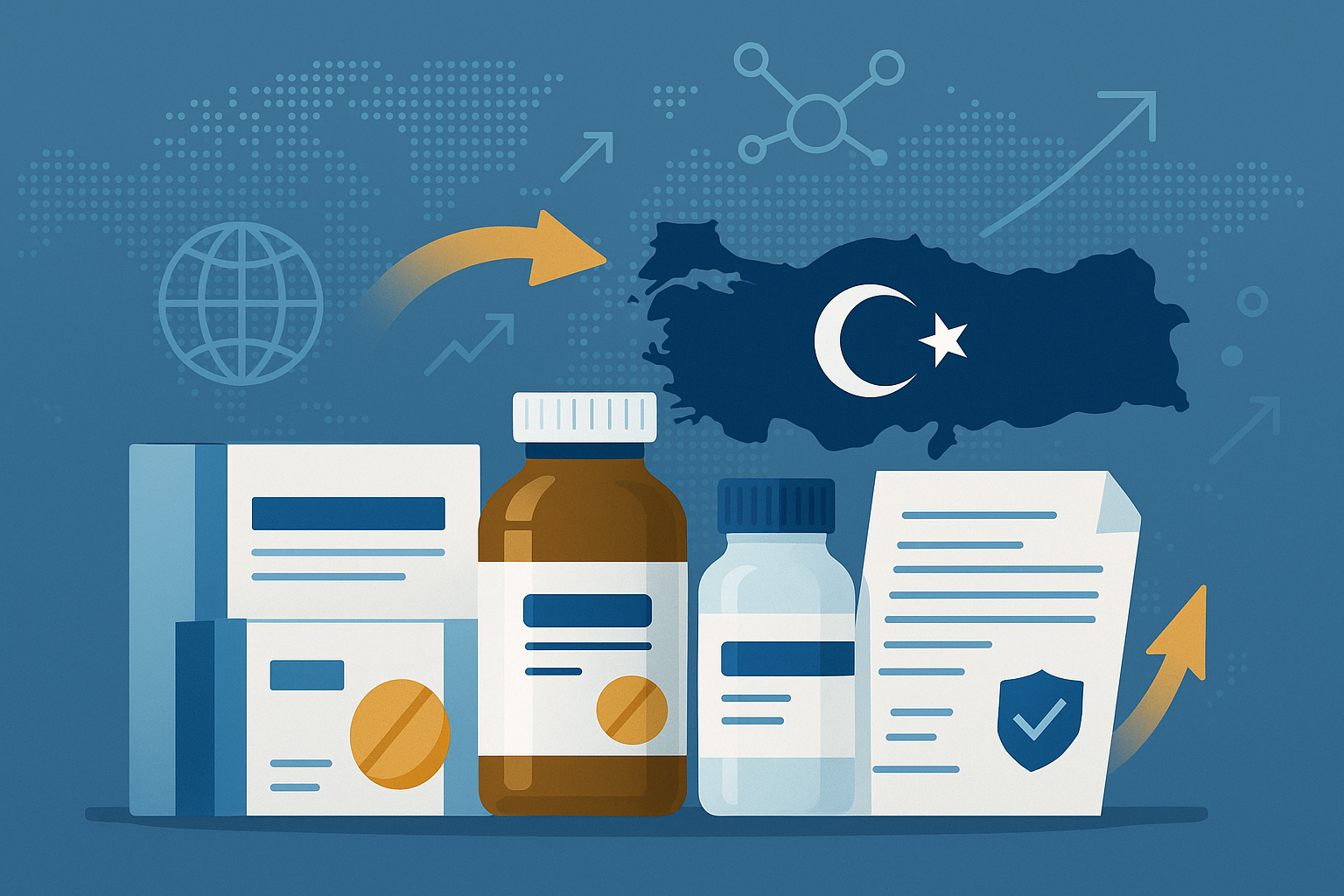1. Introduction
Türkiye stands as a gateway between Europe, Asia, and the MENA region—making it a highly attractive market for global pharmaceutical companies. With its robust healthcare system, growing population, and dynamic regulatory environment, Türkiye presents both tremendous opportunities and significant compliance challenges for foreign drug manufacturers, distributors, and investors.
This article provides an essential legal and practical roadmap for foreign pharma companies, highlighting the main regulatory hurdles and best practices for a successful market entry.
2. Regulatory Landscape: Key Authorities and Legal Framework
a) Turkish Medicines and Medical Devices Agency (TITCK)
- Main regulatory authority for licensing, market authorization, clinical trials, and market surveillance.
- All marketing authorizations, product registrations, and GMP certifications are processed via TITCK.
b) Relevant Legislation
- Pharmaceuticals and Medical Preparations Law (No. 1262)
- Decree-Law on the Protection of Patent Rights (No. 551, transitioning to the new Industrial Property Code)
- Turkish Commercial Code (corporate law)
- Personal Data Protection Law (KVKK, for patient and clinical trial data)
- Competition Law (for pricing, distribution, and exclusivity agreements)
3. Key Regulatory Challenges for Foreign Pharma Companies
a) Drug Registration and Marketing Authorization
- All drugs must be registered with TITCK before import or sale.
- Dossier requirements: detailed technical, clinical, and safety data (CTD format, Turkish language).
- Local clinical data may be required for some products.
- The review process is rigorous and may take from 12 to 24 months.
- Fast-track or priority review exists for certain innovative or critical therapies.
b) GMP Certification and Import Licensing
- GMP (Good Manufacturing Practices) certificates must be recognized by TITCK. Site inspections may be required, especially for non-EU manufacturers.
- Importers need separate authorization and must comply with detailed customs and distribution rules.
c) Pricing and Reimbursement Approval
- The Ministry of Health sets reference prices and controls reimbursement for publicly funded medicines.
- Foreign price references (mainly from EU countries) are used, often resulting in lower prices than other markets.
d) Distribution and Promotion Limits
- Only licensed wholesalers/distributors can operate; foreign companies usually need a local partner.
- Strict limitations on drug promotion and advertising (direct-to-consumer promotion is prohibited).
- Interactions with healthcare professionals are closely monitored.
e) Data Protection and Pharmacovigilance
- All patient and health data processing is subject to KVKK (compliant with GDPR principles).
- Ongoing pharmacovigilance reporting is mandatory.
4. Common Pitfalls and How to Avoid Them
- Underestimating documentation needs: Prepare all documents (technical, legal, GMP, translations) well in advance.
- Delays in local representation: Appoint a reliable local authorized representative for regulatory correspondence.
- Ignoring compliance updates: TITCK guidance changes frequently—keep informed and adapt processes.
- Neglecting anti-corruption rules: Ensure strict internal controls and compliance for all promotional activities.
- IP and patent disputes: Conduct thorough freedom-to-operate and patent landscape analysis.
5. Best Practices for Market Entry
- Early Regulatory Planning: Engage local legal/regulatory experts from the start.
- Local Partnerships: Collaborate with experienced Turkish distributors or CROs.
- Proactive Compliance: Establish strong pharmacovigilance, data protection, and anti-bribery protocols.
- Continuous Monitoring: Monitor TITCK, MoH, and competition authority publications for new requirements.
- IP Protection: Secure patents and trademarks prior to product launch.
6. Why Legal Support Is Essential
Türkiye’s regulatory environment is evolving, with close scrutiny of foreign entrants. Expert legal counsel helps:
- Navigate bureaucracy efficiently,
- Reduce application rejections,
- Shorten time-to-market,
- Mitigate IP and compliance risks.
Stj.Öğr.Esmanur AKTAŞ

Yanıt yok